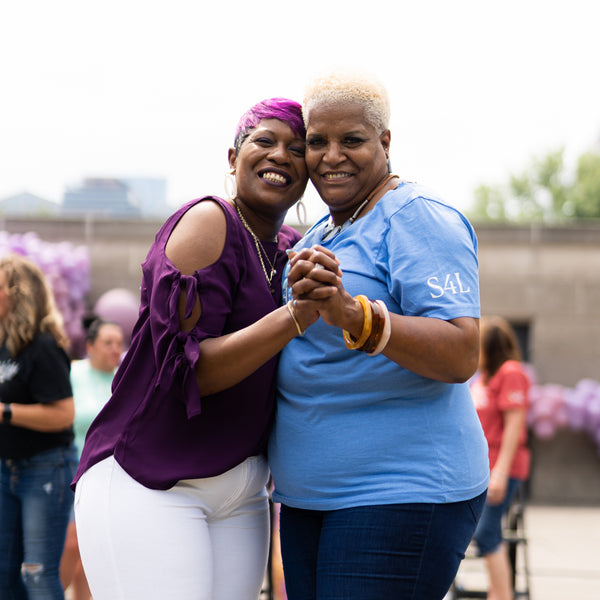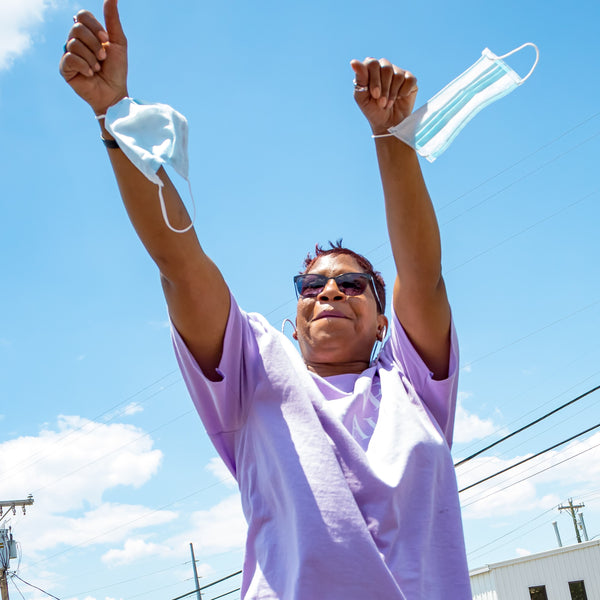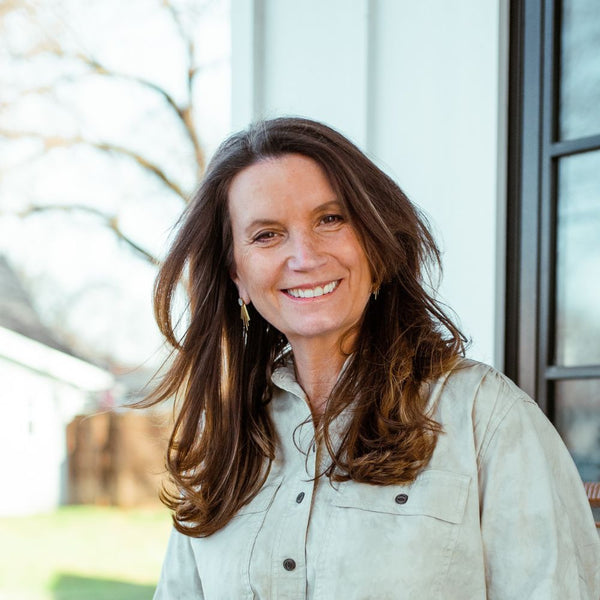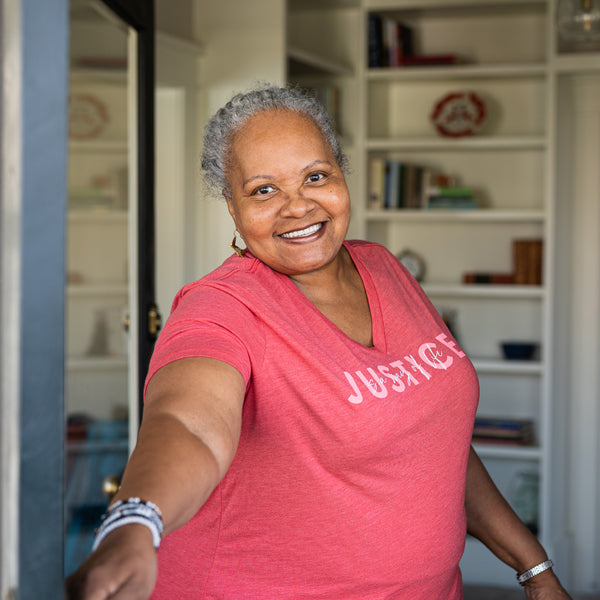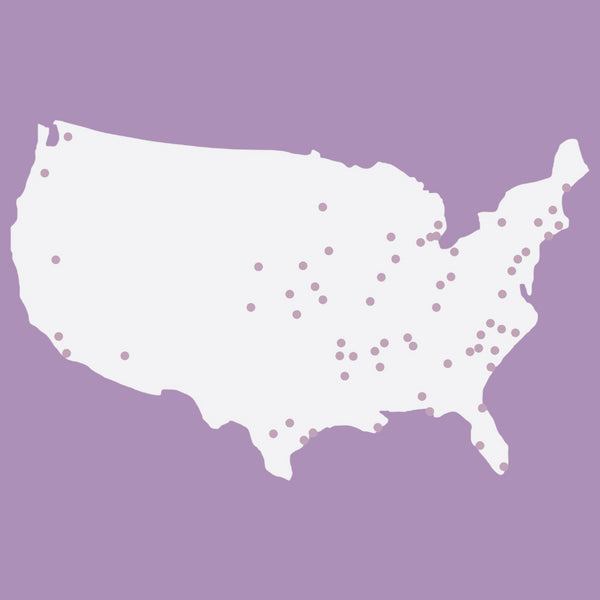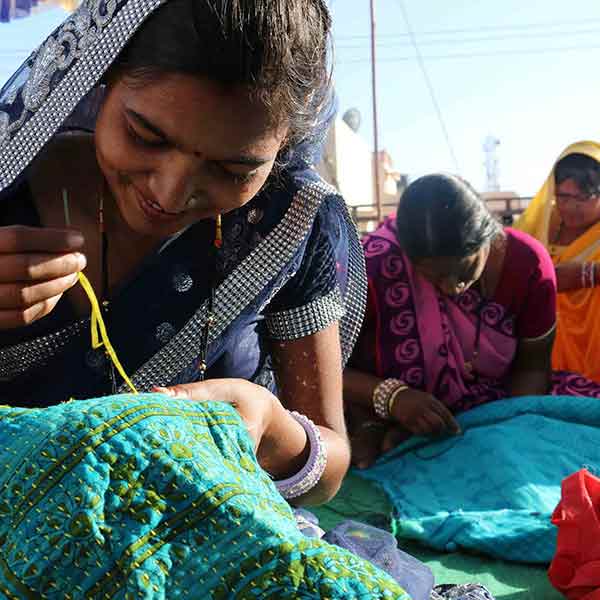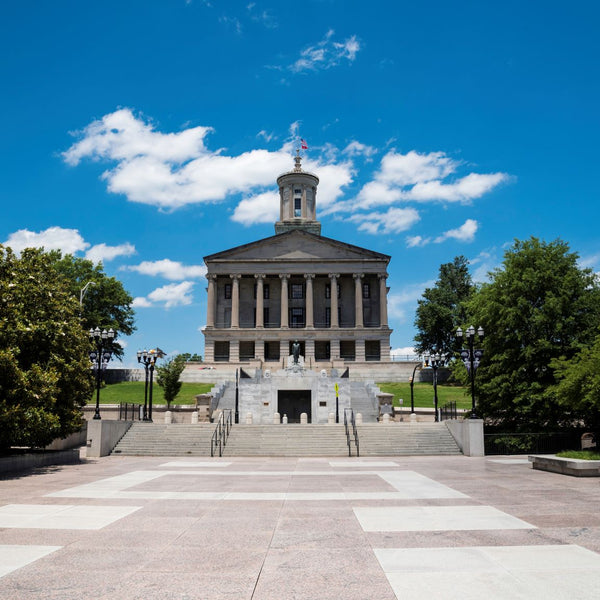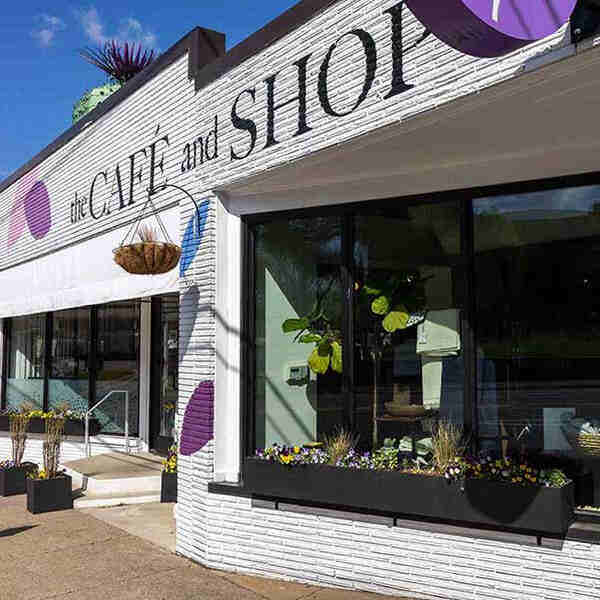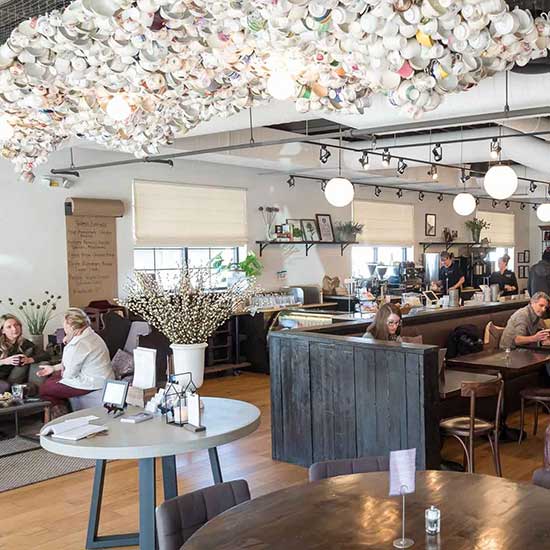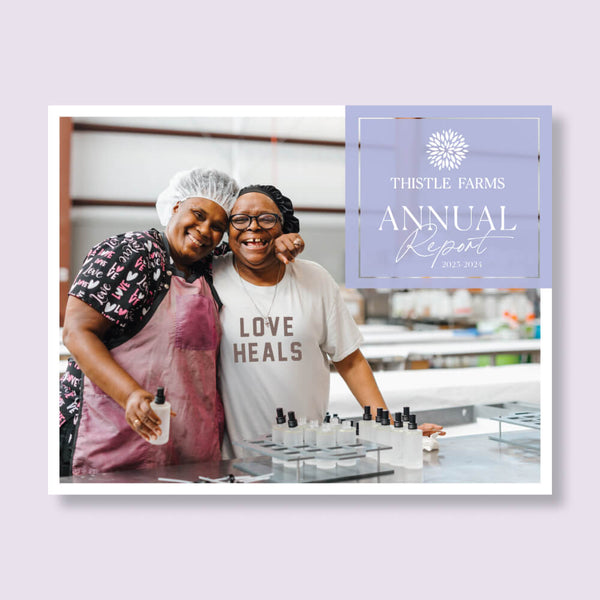Clemmie Greenlee: A Testament to Healing and Community Transformation
Throughout Women's Month, we celebrate the theme "When women heal, communities heal." There are few people who embody this truth more powerfully than Clemmie Greenlee, a 2003 graduate of Thistle Farms and a tireless advocate for violence prevention, at-risk youth, and survivors of trafficking.
Through her own journey of healing, even amidst tragedy and loss, Clemmie has dedicated her life to helping others find safety, hope, and a path forward.
Blooming Like a Thistle
Clemmie’s early life was shaped by the harsh realities of poverty and violence. Trafficked by the age of 12, she endured years of addiction, homelessness, and incarceration. As she talks about her experiences, she catalogues the physical scars she bears as a result of those years of violence and mistreatment.
But her path to healing began when she was 42 years old, finding out about Magdalene, the residential program of Thistle Farms. Introduced to the program by Regina Mullins, who was one of the first graduates of the program, she recalls being taken to St. Augustine’s Church to meet Becca Stevens, Founder of Thistle Farms.
“I got to St. Augustine’s to meet the priest and here this girl comes, in her daisy dukes and tank top, barefoot with a flower in her hair like a hippie. I said, ‘Who are you?” and she smiled and said, ‘Are you Clemmie?’ I said, ‘Yeah,’ and she said, ‘I’m Becca Stevens. You know – the priest!’ I didn’t believe it cause she looked like us. Here I was with a broken arm because I’d just gotten thrown out of a car, I hadn’t bathed…and she hugged me, even with me looking like this, smelling like this. Becca gave me a hug before she gave me a bath – and that changed my entire world.”
Over the following two years, Clemmie did the hard work that every woman who’s come through the Thistle Farms program does: dig in to build a foundation of stability and hope.
“First six months I was here, I was on restriction. I came in with an attitude, bucking up to everybody. I didn’t come in with the right reasons. I figured I’d get myself together and make a little money. Then Regina told me with the way I’d been cutting up, I’d stay on restriction because I was doing it to myself. She told me I needed to realize that I had the keys to the doors: I could open the door anytime I wanted and leave – but I never did. I kept on accepting the restrictions, but I never walked out that door and that meant something. That changed my whole way of thinking because that’s when I realized I really wanted this. After that, I was 15 minutes early to every class, cleaning up every candle, raising my hand to ask everything I wanted to ask. I wanted to see what I could do to help somebody.”
For Clemmie, that would become the cornerstone of her future work: helping others who were struggling the way she had. That was put to the test when, only eight months after graduating, Clemmie experienced a devastating loss. Her only son, Rodriguez, was killed in a gang-related shooting.
“When I first got out of the program, Becca helped me find my son. That was really the only thing I wanted to do, because he didn’t know anything about me or who I was now. We found him, we put him into rehab, and then he left rehab and I didn’t see him anymore until that December when he came to my house and said, ‘Okay, Mom. I’m ready. Put me back in. I’m ready to find out what this is.’ He was supposed go into rehab that Monday, so I was expecting him to call me to pick him up.
But when the phone rang, it was Vanderbilt calling me to tell me my son had been murdered. When I got to the hospital and pulled that curtain back, and it was like, ‘But…I know how to be a mama now. I know what to do, what to say…just give me another chance!’ I stayed there with him for a while and promised him that I’d devote my life to trying save somebody else’s child.”
Though this unimaginable tragedy could have derailed her recovery, Clemmie did not relapse. “People were at my house afterward with drugs, beer…anytime to take the pain away. And I was able to look at them and say, ‘Why would I use my son’s death as an excuse for me to go back and get high?’ That wouldn’t have been right to him, because he saw me clean, he saw the stuff I was beginning to do in the community. So why would I do that to him now?” Instead, she turned her pain into purpose, committing her life to breaking cycles of violence and exploitation in her community.
Founding Nashville Peacemakers
In 2003, Clemmie founded Nashville Peacemakers, a nonprofit dedicated to addressing violence in North Nashville and supporting at-risk youth through gang intervention, youth mentorship, and victim advocacy.

At the heart of Nashville Peacemakers are three core programs:
- Back to Basics: A life-skills program for girls designed to instill confidence, self-worth, and resilience.
- Straight Talk: A program for boys that provides mentorship, practical life guidance, and positive alternatives to gang involvement.
- Mothers Over Murder (M.O.M.): A support network for mothers who have lost children to violence, creating a space for healing, advocacy, and communal strength.
Nashville Peacemakers offers both programs and presence. Clemmie and her team show up for kids in ways that many young people in underserved communities may not otherwise experience. They intervene during crises, offer counseling and safety, provide basic necessities, and celebrate milestones.
Healing Communities, One Life at a Time
In 2012, Clemmie extended her reach beyond Nashville when she and Thistle Farms founder, Becca Stevens, helped Eden House, in New Orleans, open its doors—becoming the first justice enterprise based on the Thistle Farms model, which jumpstarted the National Network. She spent years supporting grieving mothers and survivors, and helped create pathways for women to escape exploitation.

“It’s more dangerous today than it was when I was out there. So, I try to tell people now to watch out for one another and if you’re in a situation where you’re being trafficked or pimped, just look for the weakest link. There’s always somebody in there that’s still got a heart in them. So instead of being brave and trying to run, just think and keep an eye out. There will be a way out.”
Clemmie’s work has earned her numerous accolades, including being named Nashvillian of the Year by Nashville Scene and receiving the prestigious Soros Justice Fellowship for her violence prevention initiatives. But for her, the real reward lies in the lives changed: the young men who leave gangs, the girls who choose education over exploitation, the mothers who find solace in one another.
Now, in partnership with the Centers for Disease Control & Prevention and the Davidson County Sheriff's Office, Nashville Peacemakers is expanding its "Straight Talk" program into local prisons. This initiative aims to reduce recidivism and provide young men with the tools they need to transition from incarceration to a peaceful, productive life.
The Power of Healing
Clemmie Greenlee’s story is a testament to the transformative power of healing. She took her pain and turned it into hope for others. In doing so, she has helped to heal a community too often ravaged by violence, loss, and systemic neglect.
When asked what she thinks of Women’s Month, Clemmie smiles. “Are we radical? Yes. We are doing things when everybody thinks that we are just supposed to be in the kitchen and having babies. We are driving tractor trailers now. We’re working construction sites. We’re running daycares. We run hospitals. We’re running organizations and corporations. We are taking our power back.”

“My Lord, there is no other smile as bright. There is no other spirit as indominable. There is no other heart as tender,” Becca Stevens said of Clemmie. “She launched Thistle Farms into the next chapter with her master’s level skill in storytelling and her willingness to let people help. Clemmie is a founding mother. I will always be grateful for all she taught me and for the ways she heals the world.”
This Women's Month, we honor Clemmie not only for her strength as a healer and as an “OG” of the Thistle Farms Residential Program, but also for the countless lives she has touched. Her journey proves that when women have the time and space to heal, they go on to rebuild communities, inspire change, and pave the way for a better future for all.
